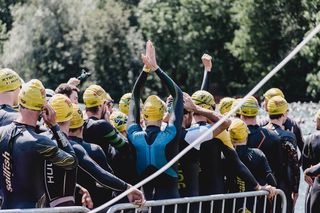
Sports psychology stands at the forefront of athletic excellence, acting as a potent catalyst in unlocking the full potential of athletes. In the pursuit of peak performance, the focus has expanded beyond mere physical prowess to encompass the intricate realm of the mind. This article delves into the profound influence that sports psychology wields, illuminating the critical connection between mental fortitude and athletic achievement.
Exploring the Interconnectedness of Mental and Physical Aspects in Sports
The intricate dance between the mind and body in sports is a dynamic interplay that goes beyond the surface-level physical exertion. Delving into this symbiotic relationship, we uncover the profound impact that mental processes wield over physical performance. Athletes are not just bodies in motion; they are minds orchestrating intricate movements with precision and intent.
In the realm of sports psychology, understanding this interconnectedness is paramount. The mind serves as the command center, dictating the body’s responses to the myriad challenges presented in competitive sports. From the split-second decisions of a basketball player on the court to the endurance required of a long-distance runner, the mind’s influence is omnipresent.
Moreover, the mental state of an athlete directly affects physiological responses such as heart rate, muscle tension, and coordination. Anxiety, confidence, focus, and motivation are psychological factors that can either propel an athlete to new heights or act as formidable barriers to success. It is within this context that sports psychology emerges as a guiding force, enabling athletes to optimize their mental processes for peak physical performance.
By acknowledging and exploring the interconnectedness of the mental and physical aspects in sports, athletes can cultivate a holistic approach to their training. This understanding sets the stage for the implementation of targeted sports psychology strategies, empowering athletes to not only refine their physical skills but also to cultivate a resilient and focused mindset that is conducive to success on the field, court, or track. As we proceed, we will unravel specific techniques and approaches to enhance this mind-body synergy, laying the foundation for sustained excellence in athletic endeavors.

Importance of Goal-Setting in Sports Psychology
Goal-setting stands as the cornerstone of sports psychology, providing athletes with a roadmap to success and a framework for sustained motivation. In the dynamic world of sports, where the margin between victory and defeat is often razor-thin, having a clear set of goals becomes a guiding light, steering athletes through the challenges of training and competition.
The significance of goal-setting in sports psychology extends beyond mere performance benchmarks. It serves as a powerful psychological tool, influencing an athlete’s mindset, focus, and overall approach to training and competition. When goals are thoughtfully crafted and aligned with an athlete’s aspirations, they become a source of inspiration, igniting the internal drive necessary for peak performance.
Setting clear and realistic goals enhances an athlete’s sense of purpose and direction. Whether aiming for a personal best, a championship title, or an Olympic medal, the process of articulating these objectives sharpens an athlete’s focus and commitment. The journey toward achieving these goals becomes a transformative experience, instilling discipline, resilience, and a heightened level of self-awareness.
In the realm of sports psychology, the SMART criteria — Specific, Measurable, Achievable, Relevant, and Time-bound — serves as a guiding framework for effective goal-setting. This methodology ensures that goals are not only ambitious but also practical and attainable within a defined timeframe. By adhering to the SMART criteria, athletes create a roadmap that is both challenging and realistic, striking a delicate balance that fuels progress without overwhelming the psyche.
As we proceed through this section, we will delve into the intricacies of goal-setting in sports psychology, offering practical insights and strategies for athletes to craft goals that propel them toward excellence. The journey of goal-setting is not merely about reaching the destination; it is about the transformative process that unfolds, shaping athletes into resilient, focused, and goal-oriented individuals both on and off the field.

Building Mental Resilience
In the arena of sports, challenges are not obstacles to be avoided but rather opportunities for growth and development. Recognizing and embracing these challenges lay the foundation for building mental resilience — a crucial aspect of an athlete’s psychological toolkit. Resilience, in the context of sports psychology, is the ability to navigate adversity, bounce back from setbacks, and maintain optimal performance under pressure.
Acknowledging challenges begins with a shift in perspective. Rather than viewing difficulties as insurmountable barriers, athletes can choose to perceive them as integral components of the journey towards excellence. This mindset shift, rooted in the understanding that challenges are inherent in any competitive pursuit, forms the bedrock of mental resilience.
Moreover, embracing challenges requires a proactive approach to adversity. Instead of succumbing to stress or anxiety, athletes can adopt a mindset that sees challenges as opportunities to refine skills, learn valuable lessons, and emerge stronger. This shift in mindset enables athletes to maintain focus and composure in the face of unexpected hurdles, ultimately contributing to enhanced performance.
Sports psychologists often emphasize the importance of embracing challenges as a means of cultivating a growth mindset. Athletes with a growth mindset perceive effort as a path to mastery, setbacks as opportunities to learn, and feedback as constructive guidance. This mentality fosters a continuous cycle of improvement, reinforcing mental resilience with each encounter with adversity.

Visualization Techniques for Performance Enhancement
In the pursuit of peak athletic performance, the mind’s ability to create vivid mental images emerges as a potent tool. Visualization, or mental imagery, is a cornerstone of sports psychology, harnessing the power of the mind to simulate and rehearse successful performance scenarios. This section provides a comprehensive overview of the transformative impact that mental imagery can have on an athlete’s capabilities.
The human brain is a remarkable organ, capable of processing information through both sensory input and imaginative faculties. When athletes engage in visualization, they activate neural pathways associated with the physical execution of a skill, creating a mental blueprint for success. This process, supported by research in sports psychology, has been shown to enhance muscle memory, improve focus, and refine motor skills.
One of the primary advantages of visualization lies in its ability to transcend the constraints of physical practice. Athletes can mentally rehearse complex movements, strategic plays, or entire competitions, reinforcing the mind-body connection and priming themselves for optimal performance. Visualization serves as a bridge between training and competition, offering athletes a virtual space to refine their techniques, build confidence, and cultivate a winning mindset.
Moreover, mental imagery contributes to the reduction of performance anxiety. By repeatedly visualizing successful outcomes, athletes condition their minds to associate competition with positive experiences, mitigating the stress response often associated with high-stakes situations. This aspect of visualization aligns with the broader goal of sports psychology — to create a mental environment that supports peak performance.

Summarizing the Key Sports Psychology Tips for Athletes
As we conclude this exploration into the realm of sports psychology, it becomes evident that the mind is indeed a powerful ally in the pursuit of athletic excellence. The symbiotic relationship between mental fortitude and physical prowess underscores the need for a comprehensive approach to training—one that recognizes and leverages the interconnectedness of these elements.
In summary, the key sports psychology tips for athletes can be distilled into actionable insights that transcend the boundaries of any specific sport:
Goal-Setting as a North Star
Establishing clear and realistic goals, guided by the SMART criteria, forms the foundation for focused and purpose-driven training.
Building Mental Resilience
Recognizing and embracing challenges as opportunities for growth fosters mental resilience, a critical attribute for navigating the unpredictable nature of sports.
Visualization Techniques
Harnessing the power of mental imagery through visualization techniques enhances muscle memory, improves focus, and cultivates a winning mindset, bridging the gap between practice and competition.
Effective Self-Talk
Understanding the impact of self-talk on performance and implementing positive affirmations transforms internal dialogue into a source of motivation and confidence.
Mindfulness and Meditation
Integrating mindfulness and meditation techniques into training and competition routines fosters mental clarity, concentration, and emotional control.
Team Dynamics
Recognizing the influence of team dynamics on individual performance and contributing to a supportive team culture enhances overall athletic achievement.
Handling Performance Anxiety
Identifying signs of performance anxiety and adopting pre-game rituals, coupled with seeking professional assistance when needed, ensures a balanced mental state during crucial moments.

Recovery and Mental Well-Being
Acknowledging the importance of rest and recovery, balancing intensity with adequate downtime, and prioritizing mental well-being contribute to sustained athletic success.
In essence, sports psychology provides athletes with a holistic approach to training—one that transcends the physical boundaries of the field or court. By integrating these key principles into their athletic journey, athletes can not only enhance their performance but also foster a mindset that supports long-term success and fulfillment in their chosen sport. As the mind becomes a focal point in the pursuit of excellence, the synthesis of mental and physical training emerges as the winning formula for athletes seeking to reach new heights in their sporting endeavors.
